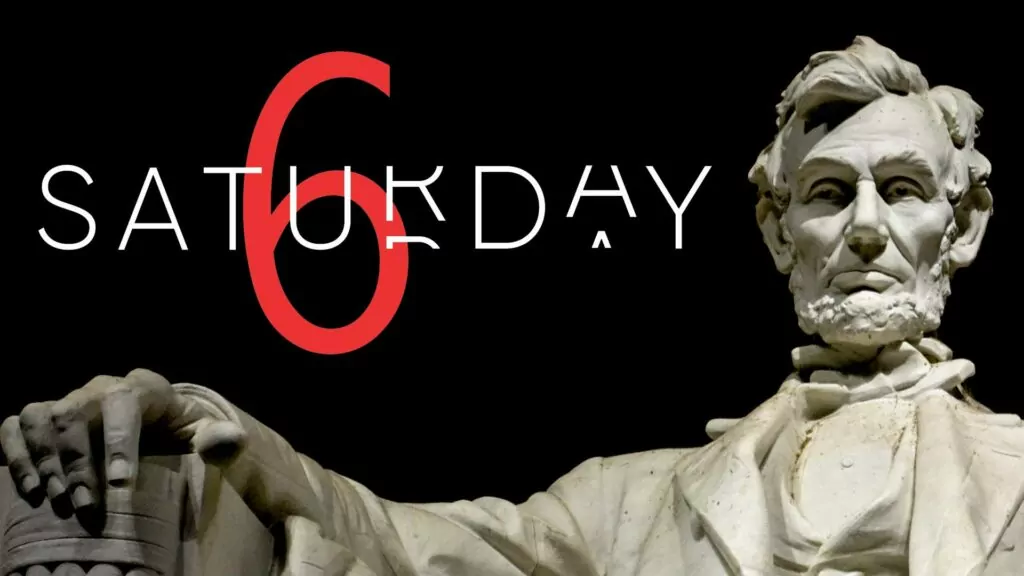What is going on with Canada’s conservative leaders?
Pierre Poilievre, Danielle Smith, and John Rustad have discovered success in a “blue ocean”
*****
When the leaves rustle and the winds blow in the valley that I call home, there is a good possibility that a new weather system is brewing.
Over the past year, a political wind that began in Ottawa and carried on through Alberta has reached BC. Something significant is changing, and the new system is catching the old guard in Canada’s political and media landscape off guard.
Under Conservative Party of Canada Leader Pierre Poilievre, New Brunswick Premier Blaine Higgs, Alberta Premier Danielle Smith, and now also BC Conservative Party leader John Rustad, conservative politicians are figuring out how to champion conservative principles, skirting the mainstream media gatekeepers. And they are being rewarded with a growing and energized base of support that has eluded their predecessors.
Now, for something completely different
The concept of “blue ocean vs. red ocean strategy” was first introduced in a 2015 bestselling business book called Blue Ocean Strategy by W. Chan Kim and Renée Mauborgne. The book explained how businesses’ traditional strategy involved them trying to outperform their rivals to capture more of the existing market – businesses succeed by taking market share away from their competitors. With this strategy the ocean is red because there is blood in the water from all the fierce competition.
In contrast, those who employ a blue ocean strategy leave that contested realm altogether by creating an entirely new market space through innovation, where there is little to no competition. Now there’s no need to beat the competition, because the competition doesn’t even exist. A classic example is the introduction of the iPhone to the mobile phone market. Apple made something people didn’t even realize they wanted and had the market to themselves for years, still dominating it today.
Although the blue ocean strategy is usually confined to business school, conservative politicians, and Conservative leader Pierre Poilievre in particular, have discovered a place for innovation in Canada’s political landscape. By championing conservative principles publicly, and communicating them directly to voters via social media (like his YouTube channel), Poilievre is making both the mainstream media and the traditional way of doing politics far less relevant.
This innovation is not only translating into political success in the polls and ballot box, it is emboldening other conservatives to champion conservative principles, and to do so with a level of conviction that hasn’t been seen for many decades.
Out with the old
For fifteen of my past seventeen years, I devoted much of my livelihood to promoting Christian principles in Canadian law and public policy. The organization I led worked closely with MPs, MPSs and MLAs, encouraging them to advance laws that would uphold life, freedom, and flourishing.
Although we developed good relationships with government officials from a variety of political parties, we worked most closely with conservative officials, since many of them shared similar principles.
Some of these MPs and MLAs were champions. They were willing to devote their political career to defend the values that motivated them to run for office in the first place.
But, without fail, the chief obstacle to these principled men and women was not their political adversaries inside or outside the legislature, but their own parties. The party leader, as well as a relatively small group of un-elected staffers, were convinced that their chief purpose was to form government, at which point they could really make a difference. And the only way to form government was to hide or minimize many of the principles that activated the party base.
But as Reformed Perspective’s editor Jon Dykstra explained so well in a piece already back in 2016,
“while power is a wonderful servant it is a terrible master. When getting elected is our first priority, then everything else – including our message – must serve that goal.”
And those who wielded the sword decided that conservative principles, especially social conservative ones, were a liability. If there was even a whiff of social conservative values being promoted beyond the office walls, these MPs and MLAs were often put in their place. That meant staying in the back benches and being denied opportunities for influence.
Time and again I witnessed how, after hundreds of hours of work to spearhead and build a coalition of support around a worthy initiative, such as a new bill, inevitably the MP behind it would get a call from above, scuttling the effort. “It isn’t the right time” was the most commonly used and accepted justification. “Perhaps when we form government.” Of course that would change to “when we have a majority” to “we don’t want to lose this majority.” It was never the right time.
These leaders and staff were perpetually in fear of the media. Talking points were carefully crafted in a way that the media may find them worth sharing in a favorable light. Yet in spite of all their efforts, the media had its own interests and were happy to share the narrative the way they wanted.
So what happens when the desire for power overrides conviction, principles, and ideology? It doesn’t take long and the party is little different than any other parties that share this same prioritization of power. It is little surprising that only about 6 in 10 eligible voters bother to vote when the parties don’t stand for much. But it isn’t just demoralizing for voters. It also takes away the motivation to volunteer for, donate to, and even care about candidates and parties. Speaking from experience, it is hard to be motivated to give my time and money to candidates who say one thing in private and something entirely different in public.
What has come from the leadership of Andrew Scheer and Erin O’Toole (federally), Tim Hudak and Patrick Brown (Ontario), Brian Jean (Alberta), and Kevin Falcon (BC)? Have they left any legacy, either through principled policy that was advanced, or through championing conservative principles so that Canadians would at least understand the direction we could have gone?
After so many years of failed ambitions, have these leaders and staffers learned their lesson? More often than not, instead they chose to blame their lack of political success on the “extreme” elements in their party who dared to speak up for principles that they believed in and were “caught” by the media.
What a contrast this is to leaders from the other side of the political spectrum, who have continued to champion their “progressive” values, even back when these values were considered extreme.
Pierre Poilievre finds a blue ocean
Quite the change happened on the federal scene when a relatively-unknown MP, Pierre Poilievre, won the leadership of the Conservative Party in 2022, in the first ballot.
Poilievre was a whole lot more than a good communicator who happened to come on the scene at the right time. That is red ocean thinking – competing in the existing market to win. Instead, Poilievre is to be credited with showing that the old way Canadian conservatives did politics is obsolete.
He did this in two ways.
First, unlike the leaders before him, Poilievre was willing to take a stand on conservative principles, even if it risked making him the center of fire from the political and media elites. For example, he showed up at the Trucker Convoy in Ottawa in 2022, standing with those whom all the other mainstream political leaders declared to be on the “fringe.”
And although previous Conservative Party leaders were fearful about making any principled stands on social issues, he was clear and public in his opposition to providing surgery and puberty blockers to gender-confused youth. And he stood up for parental notification in cases where children want to change the name or pronouns they go by at school. He regularly challenges woke culture and says out loud that he wants to defund the CBC.
But having ideological conviction isn’t itself enough to have created a whole new “ocean” of possibilities. He combined this with a new medium of communication. Instead of relying on the mainstream media to reach Canadians, he largely ignored them and spoke directly to the public through his own channels, especially YouTube.
Poilievre’s videos allowed him to not only frame an issue the way he wanted, it also allowed him to explain it with a depth that the mainstream media rarely provides. For example, he produced a 15-minute documentary about housing that has been billed “the first of its kind in Canadian politics” and has garnered millions of views across platforms. It is one thing to get 30 seconds to communicate a message to distracted Canadians on TV, and another entirely to have Canadians choosing to give 15 minutes of their own time to be educated about why housing has become so expensive, and about possible policy solutions.
And when the media tried to nail him with accusations of “taking a page out of Donald Trump’s playbook,” Poilievre responded with simple questions of his own, all while munching on an apple. That too has become a YouTube sensation, with millions of views. Yet another strike for the “legacy” media.
More leaders find the blue ocean
Poilievre’s approach has struck a chord with millions of Canadians who no longer trust what they are being told by the legacy media. The Conservative Party polls have climbed to levels not seen in their 21-year history. They are currently tracking twenty points beyond the next party.
In the past year we have seen other conservative leaders copying these tactics by:
1) being willing to demonstrate their own convictions
2) actively circumventing the legacy media
Danielle Smith is the most notable example. I followed her personal newsletter during Covid and didn’t think it was possible for someone with her strong views on the subject to be elected to office. But I was wrong. She didn’t back down from her opinions, and was rewarded with the top role in the province.
And I’m seeing this play out in even more dramatic fashion in my home province of BC right now.
The BC Conservative Party hasn’t held power since 1952 and didn’t elect even one MLA in the last election. They weren’t even considered a serious contender in BC politics until last year when they received official party status in the legislature after two MLAs left the BC Liberal Party to join the BC Conservatives.
One of those MLAs was John Rustad, who went on to become the leader of the fledgling party. Yet within a year, he has this party neck and neck with the NDP, contending to win the upcoming provincial election in October.
I first met John Rustad when he kindly agreed to join a group of local residents in a neighboring community for a dessert social, so that they could get to know their MLA. What was striking about him then hasn’t changed today – he is an ordinary guy who cares about this province. He is humble but confident about the truth. And he isn’t scared to say the truth, even if his party leadership or the mainstream media disagree.
Rustad didn’t leave his former party because he was looking for better opportunities. He was kicked out, after challenging the established thinking on climate change.
And then, for his very first question in the legislature as the party leader, he called on the Premier to replace the government’s sexual orientation and gender identity (SOGI) program in the province’s schools. SOGI, like climate change, was another sacred cow that the BC Liberals didn’t want their members to publicly talk about unless they were upholding the “progressive” consensus.
Not only have the BC Conservatives exploded in popularity, the BC United Party (formerly known as the BC Liberal Party) collapsed almost overnight. Kevin Falcon, the United leader responsible for kicking Rustad out, humbly chose to not run the United party against the Conservatives.
And the NDP, who were favorites to win the election, are suddenly rethinking their own progressive policies, announcing that they support getting rid of the carbon tax if allowed by the federal government and reversing their opposition to involuntary care for those with mental health and addiction issues. This is all the more remarkable when you consider BC was the first province to put a carbon tax in place.
From blue oceans to blue skies
We may be encouraged by, and even rejoice in, some of what these politicians and parties are now embracing. It is a welcome change from the political leadership we experienced over the past decade.
But just as their new approach was unthinkable a few years ago, there are so many more principles and opportunities that are still unthinkable in today’s political climate… but which would be a great blessing to our nation and society.
Imagine a country where our leaders humbled themselves under our sovereign God, acknowledging that He is Lord over all. Imagine a constitution and laws that uphold God’s unchanging will for humanity. Instead of appealing to “common sense,” our leaders would direct our eyes to God’s Word.
Imagine the blessings that would flow from a nation that prioritized marriage, as God designed it, and the children that God so graciously gives to many. A nation where the rule of law is upheld and our leaders are hungry to pursue justice and uphold the fundamental freedoms that God has granted.
It isn’t just the world that gets mixed up on priorities. I’m also guilty of prioritizing power over principles. If I’m in a public forum, I’m tempted to stick to values that others will share. I downplay or hide what God has made very clear in His Word, even though I confess that “I delight in your decrees” and “I will speak of your statutes before kings and will not be put to shame” (Ps. 119:16, 46).
Yes, we need to be prudent and not throw pearls before the swine (Matt. 7:6). But if we love our neighbors, we should want the very best for them. Cutting taxes and shrinking government is great, but it doesn’t get close to addressing the real brokenness in our culture and country. The real problem isn’t taxes or restrictions, but sin. And the amazing reality is that there is a solution! Jesus Christ offers the kind of life and freedom that can never be taken away.
So while we can be grateful that some of our leaders have discovered blue oceans, and that may be as good as we get in the political realm today, let's point them and all our neighbors to blue skies. Real and lasting hope are found in Christ alone.
Picture credits: Pierre Poilievre: screenshot from “How do you like them apples? Part 1”; John Rustad: screenshot of a Sept. 13 tweet; Danielle Smith: Marvin Samuel Tolentino Pineda / istockphoto.com...































